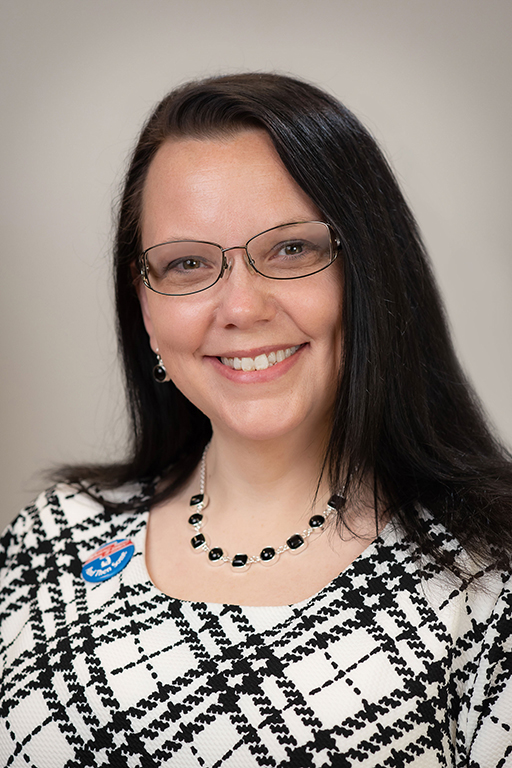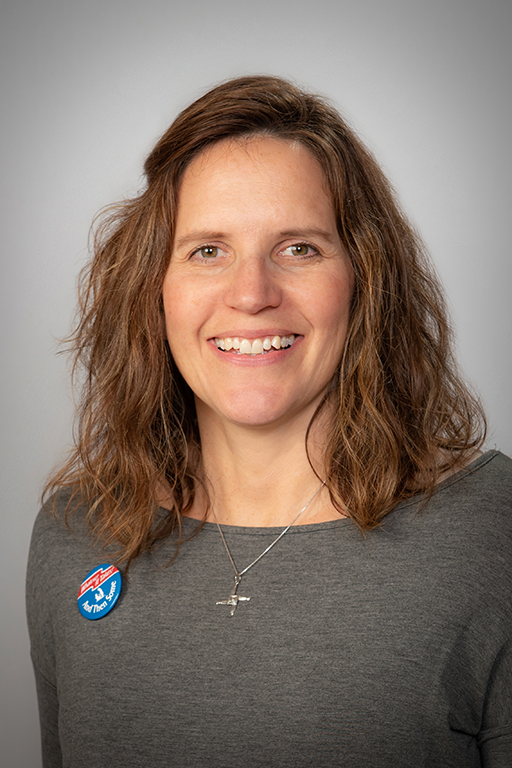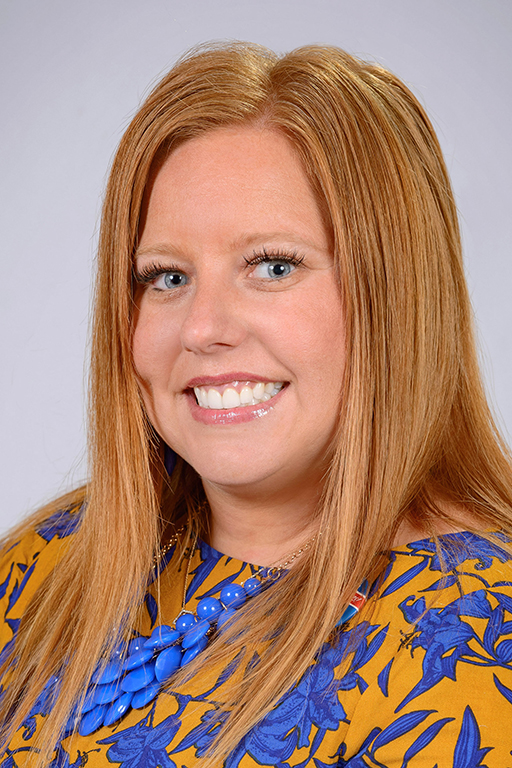May is Better Speech and Hearing Month, we we’re celebrating the wonderful work our speech-language pathologists do.
Speech-language pathologists, also known as speech therapists, treat communication disorders, as well as swallowing disorders, and can help with cognitive strengthening – including memory and problem-solving.
Meet some of Life Care’s outstanding SLPs.

Jenny Jordan, director of rehab programs and systems
Jenny has been a speech therapist since 1997. She has worked for Life Care since becoming the director of rehab services at Parkview Nursing and Rehabilitation Center in Paducah, Kentucky, in 2011. She is now a member of the corporate rehab team, supporting facilities around the country.
“I enjoy seeing the meaningful improvement for our patients and the way you can impact someone’s quality of life,” Jenny shared. “There are moments when you watch a person’s meaningful connection with a loved one.”
Jenny remembers one man in particular who had had a stroke and was suffering from aphasia (difficulty finding words). His 55th wedding anniversary was approaching, and Jenny worked with him over and over to be able to tell his wife, “I love you.” When the day came, Jenny brought him roses, which he handed to his wife while saying those words.
Jenny enjoys working with all her patients, although she particularly enjoys the challenge of working with acute neuro patients, such as stroke and brain injury patients.
When she was asked what qualities are important for a speech therapist, Jenny shared, “You have to be compassionate. You have to be able to take on someone else’s perspective – both the patient’s and the caregiver’s.”
Her favorite movie is “Pretty Woman.”

Molly Rebich, director of rehab services at Life Care Center of Kennewick, Washington
Molly has been a speech therapist since 2006 and the director of rehab at Life Care Center of Kennewick since 2018.
“When I get to interact with the residents, it’s the highlight of my day,” Molly said. “I love to hear their stories, help rehabilitate them and get them back to their lives.”
For example, Molly will always remember one resident who had been at the facility for over a year on a feeding tube with no oral intake. As a new speech therapist, Molly was completing routine screens when the resident mentioned she would like to try to eat again. Following successful oral trials and speech therapy treatment, the patient’s diet eventually advanced to a normal diet, allowing her to eat Thanksgiving dinner with her family. Once the feeding tube was removed, this decreased the medical complexity to a level where her husband could provide care, and she returned home.
Molly listed “compassion and a desire to always improve yourself as a therapist” as important qualities for SLPs, and she shared that she was drawn to Life Care because of the importance the company places on education.
Molly is certified in VitalStim®, electrical stimulation to assist patients with swallowing, as well as deep pharyngeal neuromuscular stimulation and Parkinson Voice Project. She also has training in dementia care.
“Listen to your residents,” Molly advises new speech therapists. “Know them and understand them because without knowing and understanding them, you won’t be able to provide for their needs.”
Molly’s favorite movie is “City of Angels.”

Bethany Sattovia, regional rehab director for the Missouri Region
Bethany has been a speech-language pathologist for 19 years, including almost 16 with Life Care.
“I just wanted to serve other people and be able to bring them hope,” Bethany shared about why she chose this field. She was inspired when she went to visit her grandmother in a nursing home and saw a speech therapist working with a patient who had had a stroke.
One of Bethany’s favorite experiences as a speech therapist was when she was a speech therapist at The Westchester House in Chesterfield, Missouri, and worked with a patient who had been pulled out of school in third grade to pick cotton and had never learned to read.
Bethany brought in books, starting with sight words and progressing to word books, and she gave the patient homework assignments to work on each day. By the end of his stay, he could read a full children’s book with very little assistance. For this act of caring, Bethany won the Whatever It Takes And Then Some customer service award for the Central Division in 2015.
“I like seeing people overcome, whether it be a cognitive difficulty or communication or swallowing,” Bethany said.
Bethany is certified in VitalStim®, MBSImP therapy for swallowing and LSVT LOUD™ therapy for patients with Parkinson’s disease.
“Life Care has blessed me with so many educational opportunities,” she said. “The leadership I’ve been provided with has helped make me into the person I am.”
For new therapists, she shared, “You have to have passion and the ability to adapt. You have to have a servant’s heart.”
Bethany’s favorite movie is “Christmas Vacation.”

Karen Williams, director of rehab services at Northwood Hills Care Center in Humansville, Missouri
Karen Williams has been a speech therapist for 37 years, 14 of those with Life Care.
“It still feels like it’s Day One,” Karen said.
When she was deciding on a career, she had narrowed her choices to either a beautician or a speech therapist.
“They both bring beauty to people,” Karen said. “For a speech therapist, the beauty is through restoring function.”
As a DOR, Karen loves not only helping patients recover but also helping her team (both inside and outside the therapy department) grow and learn.
Karen is certified in VitalStim®, LSVT LOUD™ and the BCAT® Approach (Brief Cognitive Assessment Tool). She also has extensive training in dementia care.
Over the years, several patients have touched Karen’s heart. One patient came on hospice and was on a feeding tube. He hadn’t eaten food in five years, but Karen evaluated him for swallowing, and he was able to relearn how to swallow. After a few months, he was able to eat and drink normally again.
Another patient had had a head injury 10 years prior to coming to Karen’s facility for therapy.
“Everyone had given up hope,” Karen said. “He couldn’t communicate.”
Karen spoke with a local speech therapy professor about what she could do to change her patient’s outcomes. With the professor’s advice, and one step at a time, Karen worked with him and helped him talk again. He even gave an address at a state public administrators’ conference about his experiences not being able to communicate.
“To be a speech therapist, you have to make a commitment to being a lifelong learner and never losing the joy of serving people.”
Karen’s favorite movie is “Julie and Julia.”
Life Care operates or manages more than 200 skilled nursing, rehabilitation, Alzheimer's and senior living campuses in 27 states.
Find a Location